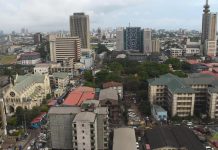Africa-Press – Gambia. Ebrima Drammeh, a survivor of the perilous “backway” migration route and now an activist, has issued a stark warning about the increasing number of women, children, and even pregnant women embarking on the dangerous journey from the Gambia to Europe.
In an interview with Kerr Fatou, Drammeh described the shifting demographics of migrants traveling along the route. “Babies are embarking on this journey. Some are months old, some are one or two years old, and even pregnant women. Parents see this as an opportunity for them to get their documents quicker and easier,” he said.
He noted that Gambian women now constitute a significant proportion of migrants, a marked change from previous years when men dominated the migration flows. Drammeh estimated that women now make up roughly 30 to 40 percent of travelers on this route.
Despite the hopes driving these journeys, Drammeh cautioned that Europe often falls short of expectations. “We are risking our lives, but we are not even welcome there. Migrants are not welcome in Europe,” he said, noting that arrivals frequently face prolonged stays in processing camps while awaiting documentation and employment opportunities, a process that can take three to five years.
He also highlighted a concerning new trend: migrants increasingly taking direct boats from Gambia to Italy, bypassing Libya and other transit countries. “This is another reason why Gambians are continuously embarking on the journey because now they are taking the boats directly from Gambia,” he said.
During the past weekend, Drammeh reported, three boats carrying migrants from Gambia arrived in Spain. One vessel reached Gran Canaria on Saturday evening, carrying 53 passengers, including 12 women and three children; two passengers were hospitalized upon arrival.
On Sunday, two additional boats departed from Tanji and Barra. The first carried 161 people, mostly men from sub-Saharan Africa, along with 26 women and eight minors. Drammeh said the passengers described an eight-day journey and included nationals from Gambia, Senegal, Guinea-Conakry, Mali, Guinea-Bissau, and Nigeria.
“According to the migrants themselves, they had made an 8-day journey from Tanji. The people on the boat are Gambian, Senegalese, Guinea-Conakry, Malian, Guinea-Bissau, and Nigerian nationals,” he said.
The second boat carried 81 people, including 15 women and three children, who reported a six-day journey from Barra. The group included migrants from Gambia, Senegal, Guinea, and Mali.
Drammeh said that The Gambia is increasingly being used as a transit hub for irregular migration to Europe, drawing travelers from across West Africa seeking to bypass more traditional, often riskier, migration routes.
For More News And Analysis About Gambia Follow Africa-Press






